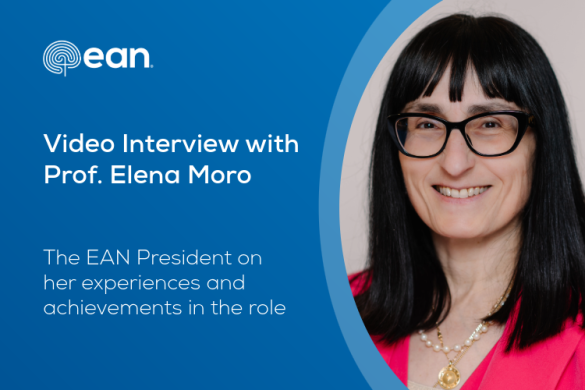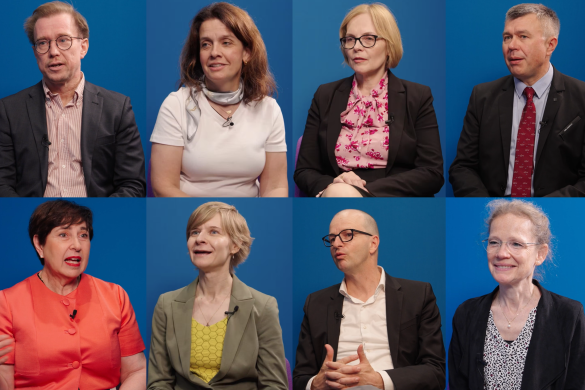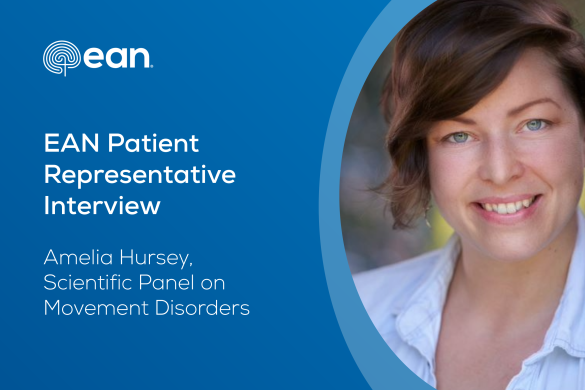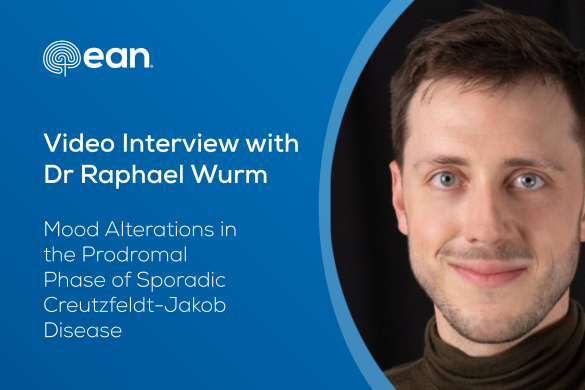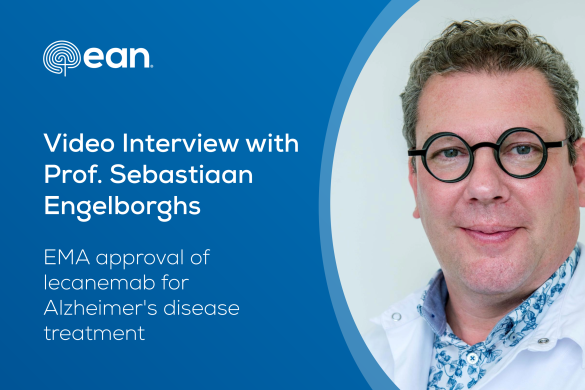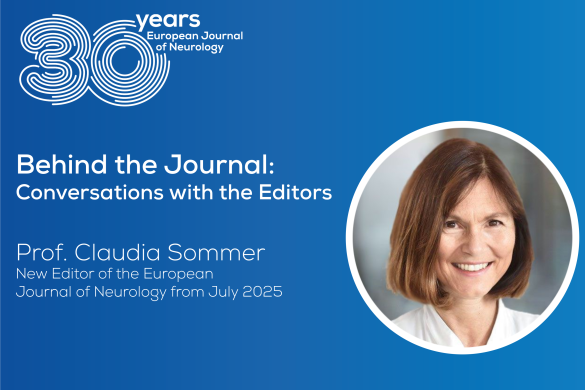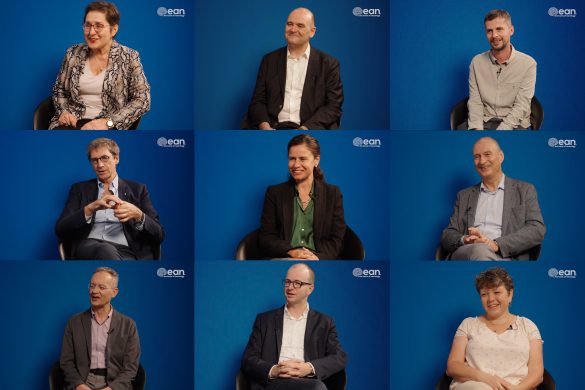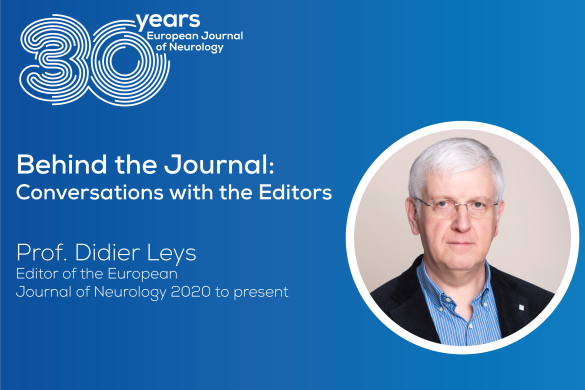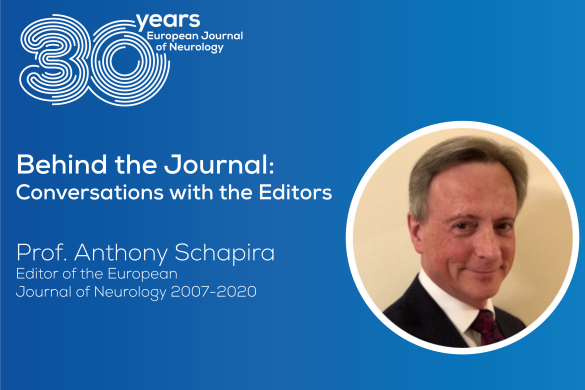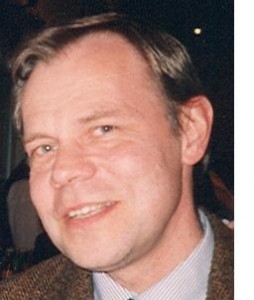 Professor Jan Kuks is Head of the Examination Committee at the Section of Neurology, UEMS, chairs the EAN Sub-committee on CME and works at the University Medical Center Groningen, the Netherlands
Professor Jan Kuks is Head of the Examination Committee at the Section of Neurology, UEMS, chairs the EAN Sub-committee on CME and works at the University Medical Center Groningen, the Netherlands
The UEMS is the largest European Medical Organisation (EMO), with membership comprised of 35 National Medical Associations (NMAs), 39 Specialist Sections and Boards, 11 multi-disciplinary joint committees, 1 thematic federation, and an annual income budget of 1, 4 million Euros.
The UEMS also has observers from the wider WHO-defined region of Europe.
“If you think that education is expensive, you should consider ignorance”
Socrates
Gian Luigi Lenzi (GLL): Starting out from Socrates’ quote, can you briefly illustrate the importance of Continuing Medical Education (CME)/ Continuing Professional Development (CPD)?
Jan Kuks (JK): It is obvious that medical disciplines are so rapidly evolving that revolutions nowadays become more common than evolutions. Textbooks get out of date within two years or less and we are dependent on the fast amount of literature that paralyses us as a general neurologist will not be able to cope with all the news that comes up. Of course there is a filtering (called ‘education’) by several organizations whether or not commercial and with our without their own interests. Among these an educational offer from an independent professional association like EAN that alerts and keeps awake remains highly necessary. To go back to Socrates: I just attended a very fine lecture on immune mediated dementias on a high educational level (Symposium 4) and this made me aware of possibilities to jump straight out to a proper diagnosis, leading to savings of health and well-being of the individual patients and on the other hand to savings of health costs for the community. Of course this is a most specific example but many others in relation to efficient diagnostics and therapy could be given. On the other hand education should not only include positive facts but also guide to professional development. This holds how to handle acquired knowledge in a critical way and on the other hand how to deal with ignorance to prevent a doctor from just performing ‘diagnostique à la mitrailleuse’ leading to expenses and unnecessary burdening of the patient.
GLL: Which means does Section of Neurology UEMS (SN UEMS) have to contribute to the improvement of the overall quality of neurological care in Europe?
JK: As it is in the name, the UEMS section of neurology is part of a large association of European Medical Specialties, aiming at harmonization of postgraduate education of young medical specialist, offering educational tools to countries that do not yet have established these and ensure quality control of highest standards all over Europe, so that mobilisation of both doctors and patients will be enhanced and facilitated. From this point we can help local medical specialist societies defending their interests, for example when they are threated by political measures that may impair locale neurological care. An example, taken from reality, may be a governmental announcement of shortening of the postgraduate training for reasons of cut down expenses and ‘save money’. The UEMS may (and really did) support local societies in such situations. A UEMS-visitation procedure of clinical departments, involved in training specialists, may control the level and completeness of the training of medical specialist to fulfil international criteria. Setting up a description of a core curriculum (as we did) may facilitate the organization of local training programs. Needless to say, that all these actions may enhance overall quality of neurological care in Europe.
GLL: How can the SN UEMS exam contribute to the harmonization of the standards of European Neurology?
JK: Organizing a board examination for young specialists may enable these to fill up gaps in their competencies which have not been covered locally, that means, if prerequisites for taking this exam have been set sufficiently and made known to the candidates to prepare them for testing. In the ideal situation, at least part of the examination of clinical residents should be centralized in Europe, again, to ascertain the quality of medical doctors moving over the boarders of their countries and to guarantee the care for patients coming to other countries for getting specialized medical care or getting in medical trouble when being there for other reasons. A Europe-wide certificate may warrant this. We really hope to come to a broad examination over Europe, like the anaesthesiologists and some other specialties already realized. Offering such an exam may influence the local education program and thus harmonize the standards of European Neurology.
GLL: In your position as Head of the Examination Committee of the SN UEMS, what is your wish for EAN? Is there a role for EAN in the harmonization of training in neurology?
JK: My wish for the EAN is that they remain able to continue the jobs the EFNS and ENS took on and realized in a nice way until now. I really hope that there will be no unproductive competition between persons but a process of joining individual competencies like dipoles getting in the same direction of a strong magnetic field, thus strengthening this field.
Yes, I see a role for EAN in the harmonization of neurology. There is no education without science as there is no science without educated transmission. The SN-UEMS needs the scientific force of the EAN to be able to produce an up-to-date educational program that makes sense and to create an examination that reflects reality of modern scientific world. As science is communicated in an international way, science-based training of young neurologists cannot be organized within the borders of a nation. Getting the EAN intensively involved in the organisation of training programs, will emphasize the need of harmonization and thus enhance this process.
On the other hand, a sound educational program and exam may breed interest in science and thus lead young neurologist to participation in research projects.
I do not know a better example of mutual insemination than the interaction that ideally should exist between science and education.





